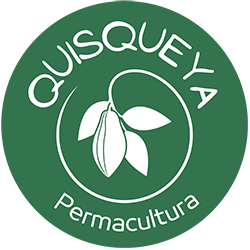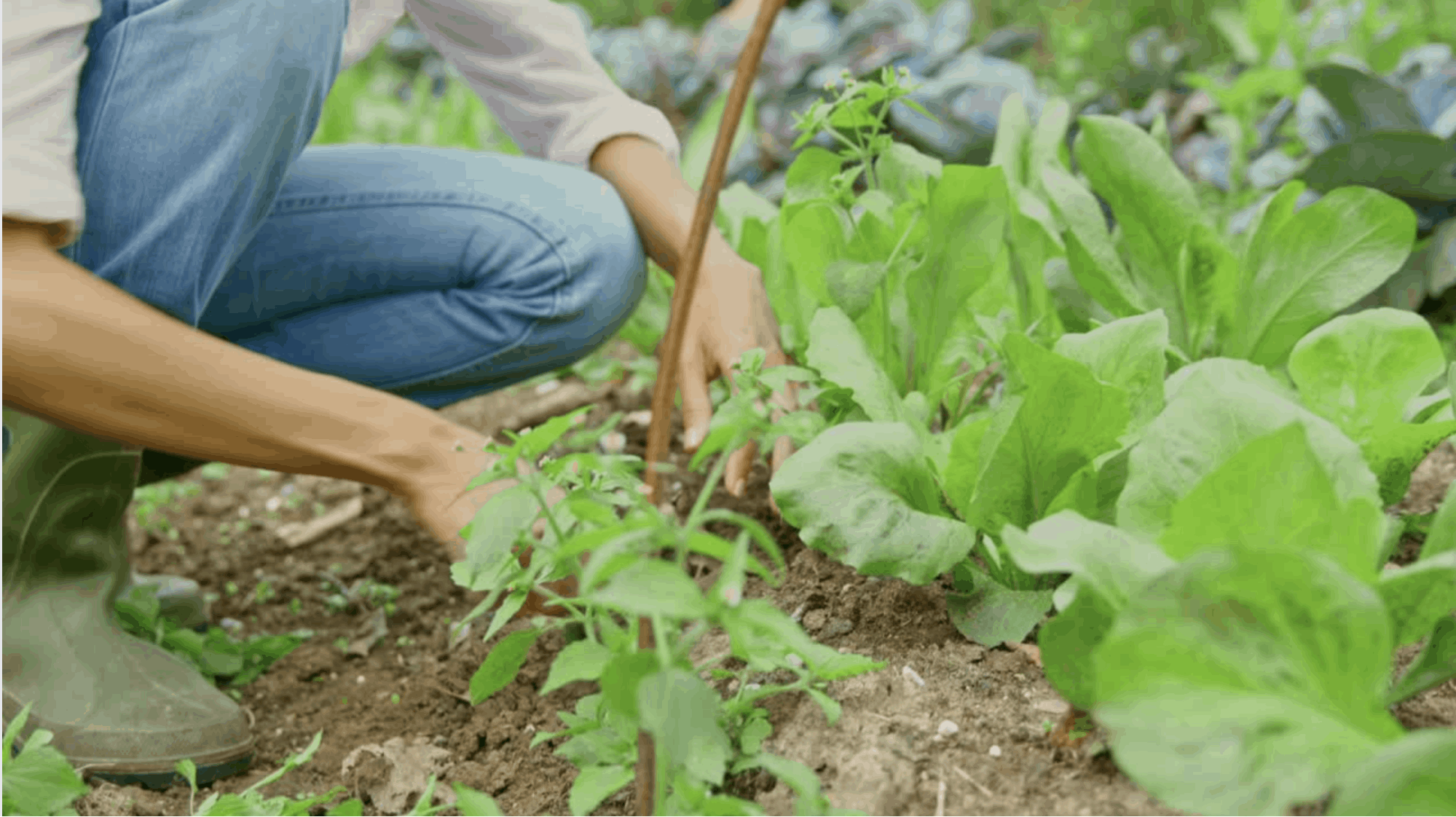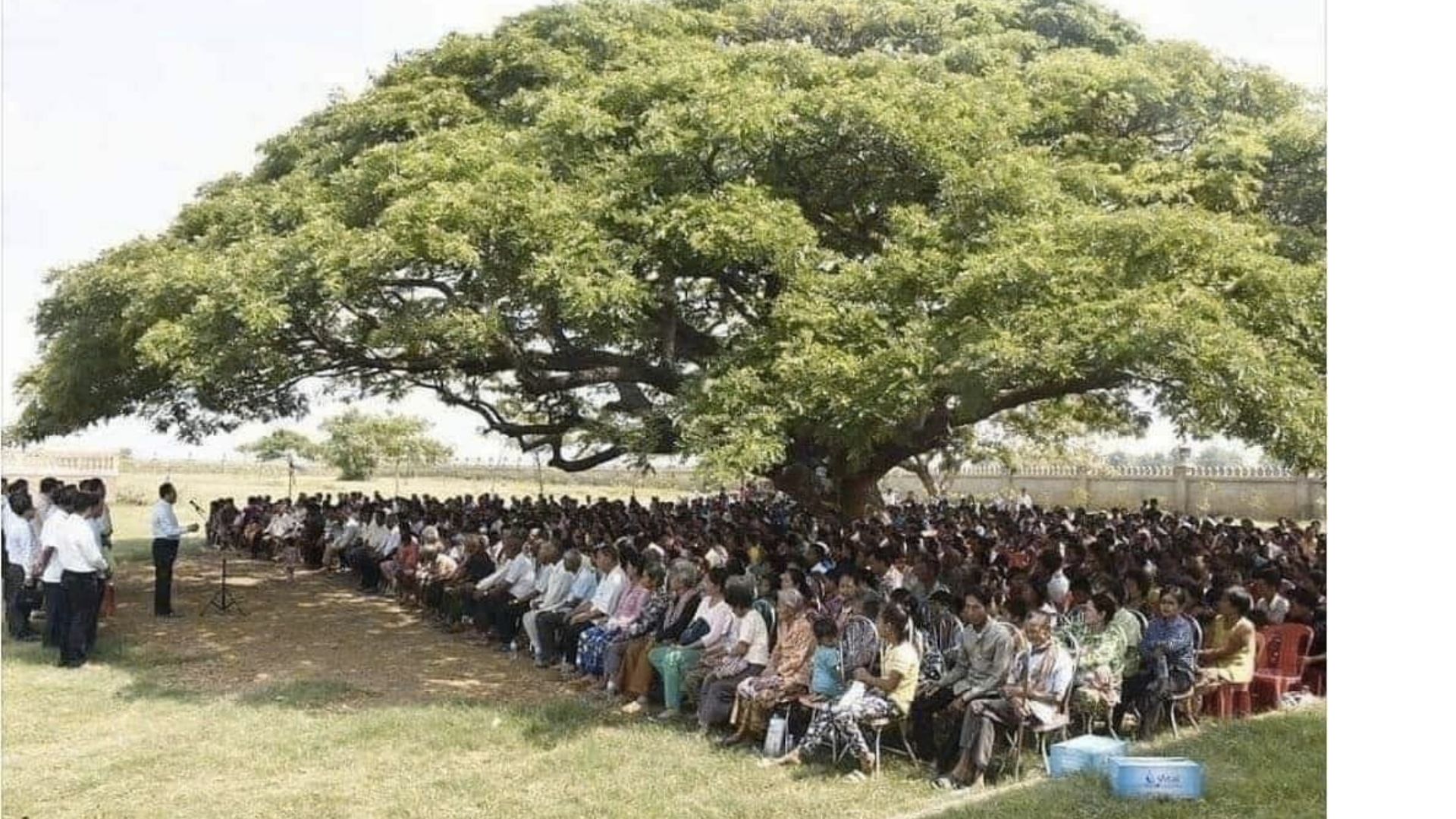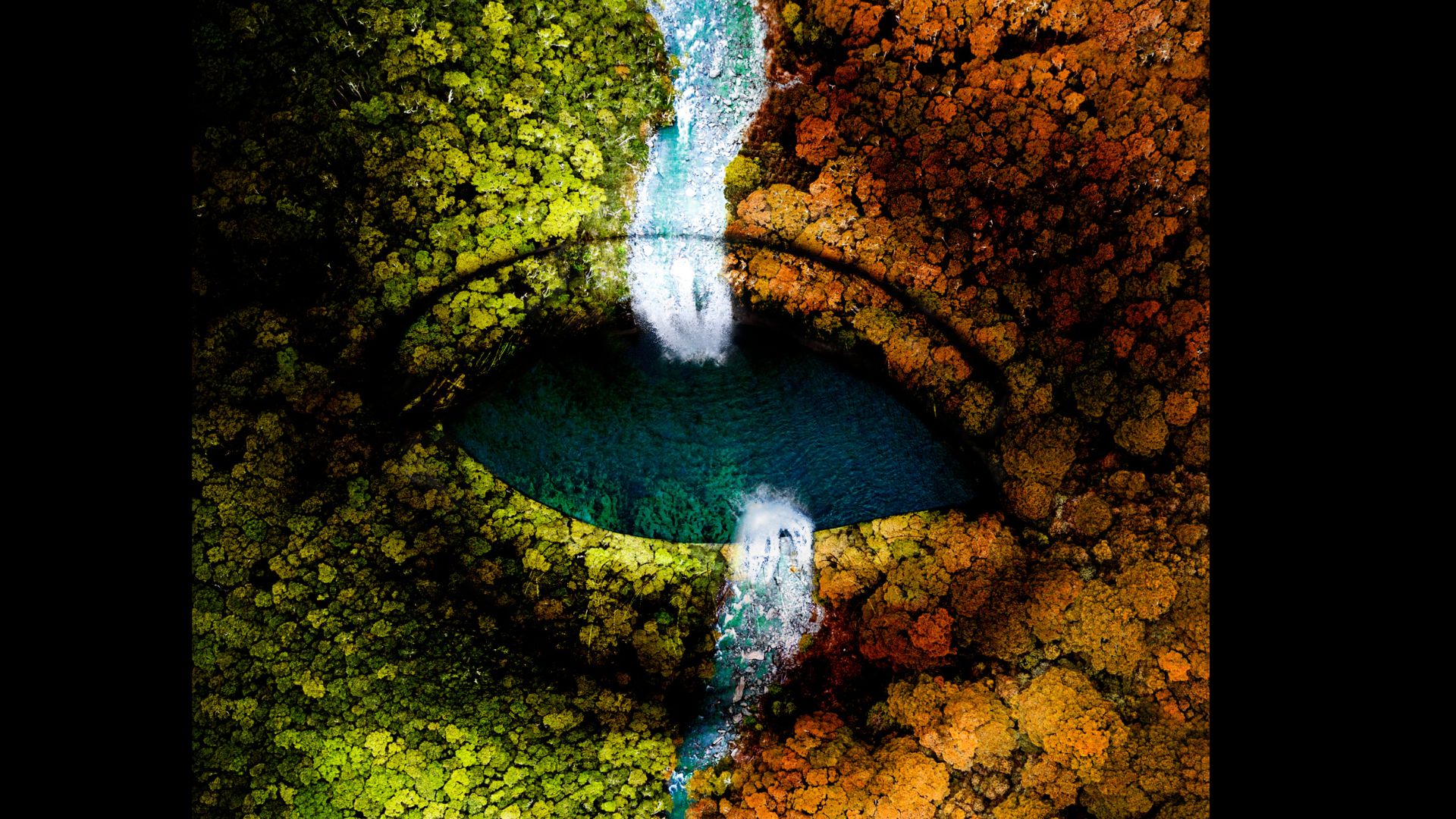Permaculture and Economics
Let’s define Economy.
It wasn’t until recently that I understood the definition of the word “economy” in its truest form. The word has its roots in the Greek words “Oikos” referring to “home” and “nomia” meaning “administration”. Thus the word ECONOMY, in its essence means “Administration of the “Home”, or the basic unit from which reproduction and production derive from. Today we know that it is a home we collectively share, a global ecosystem: our biosphere. That thin layer on the surface of the Earth that supports all living (biota) and non-living (abiotic) things, from which derives the energy and nutrients that sustain life on Earth.
So, why didn’t I truly understand the word Economy before?
In today’s world, the word Economy is often associated with concepts such as accumulation of wealth, money, prosperity, crisis, savings, markets. Because the concept was so dehumanized, I never fathomed that humans and the world around us were a part of it outside of labor and resources as elements in the process of monetary production for our Economy. Nor did I imagine the importance of our active participation in the production and reproduction of life. In fact, as a Dominican, when living in countries with dominant western economies, it always felt like there was a wide range of options and perspectives for collective management, community work and meaningful exchanges based on reciprocity that we were being left out.
Only through the remembrance in my own cultural background and my interest in Permaculture and systems thinking approaches, had I started to make sense of the different exchanges that occur spontaneously in nature and its human communities, the yields that can be obtained from them and how surplus can then be recycled back to these systems. Nature has its own form of economy in which all life on Earth, including humans participate so that it can “administer” itself!

Hence, words like abundance and wealth took on new meanings and this particularly became evident when I ran into the holistic framework: 8 forms of Capital framework.

By embracing this paradigm shift, one closer back to my own roots. One where humans, living organisms and nonliving elements consciously interact, form a part of the equation and provide, within given-rights, a benefit to help support life on Earth. I realized that for most years of my life my interpretation of “Economy”, and my participation in it, were truly, quite Anti-Economic.
Permaculture: Defined
Permaculture was first coined and proposed by Australian biologist and scientist Bill Mollison and his thesis student David Holmgren in the late 1960s, as a result of research into Australian forests with the aim of developing permanent agricultural systems, or, permanent agriculture. However, the results of their research led them to continue investigating other branches such as human settlements, indigenous cultures, as well as different societies and sciences around the world. Particularly their investigations focused on aligning values systems, principles, religions, practices, worldviews.
Both David and Bill acknowledged their great appreciation and focused on the lessons learned through those civilizations who have persevered through time; coexisted in balance with their environment and practiced good governance and efficient resources management.
With time, Permaculture became a holistic and a multidisciplinary science that proposes that, as humans, we consciously design landscapes that mimic the patterns and relationships found in nature. Permaculture seeks to create a permanent culture: achieve the sustainability of the planet, restore eco-social damage and meet basic human needs (food, health, energy, community, infrastructure, mental, spiritual.) It emphasizes that to be fully sustainable we must respect, learn from, have extensive knowledge towards cultures and practices that have managed to survive throughout history and adapt to the Earth’s ongoing changes.
In that sense, I believe that Permaculture can serve as a whole ecosystem approach to ECONOMY. It is a community-based model that can be used regardless of the size, location and culture, as it adapts to each context and recognizes the direct action of its members: making decisions and resolving conflicts intentionally and consciously to care for the place we call “home”.
Permaculture: A Purposeful Administration of Our Home
So why do I believe that Permaculture is a framework that allows us to learn how to beneficially co-exist with ourselves and others in our collective and shared home? Permaculture has a focus on:
- Production and Reproduction
“Life is conducive to producing more life” -whether in ourselves, our backyards, or our communities!
This is ever more relevant when we see the ways in which birds and butterflies help produce seedlings and fruits through seed-dropping and pollination; people and communities revive through prayer, meditation, dance, music and theatre, our gardens and kitchens grow when we seed save, plant food for humans and biodiversity and create rich compost in which plants can thrive.
Permaculture invites us to take back our sense of purpose and be a part of the cycle of production and reproduction of life, for the benefit not only of our collective wellbeing, but also, equally important, our individual stability and wealth.
- Knowledge of societies who are linked to the permanence of life,
The wisdom of Indigenous people around the world over millennia regarding community, land and nature is at the heart of Permaculture. While the west often divides the social and natural spheres of life, indigenous cultures around the world have an alternative notion of how the web of life works.
In fact, Dr. Eglee Zent, a friend and etno-ecologist / botanist who teaches and investigates and produces various works for Venezuelan Research Institute, particularly about the behaviors of the Jöti peoples in the Venezualan Amazon, has stated that languages in amerindian indigenous cultures do not even have words that can be translated as “society” or “nature” as their cosmovisions recognize a continuous notion of interdependence, interconnectedness in a global biosphere inhabited by different actors such as plants, animals, human beings, amongst others.
Indigenous communities recognize that in order to guarantee a balanced social-natural co-existence, we are subject to a set cultural infrastructure, meaning: values systems, norms, roles, responsibilities.
- Ethics-based way of living
With the word ethics thrown around in so many spheres: private sector, politics, religion, government, one tends to think it would be so ever present in everything that we say or do. However, for some strange reason it is highly difficult to find.
Ethics also originates from a Greek rooted-word “ethos” meaning “character” “guiding beliefs”/ A sense of developing moral codes or behaviors that do not seek to harm anything or anyone. The Ethics Center states that “ethics is the process of questioning, discovering and defending our values, principles and purpose.”
Thus if we live by ethics, we are living with a continuous commitment to have a sense of purpose and strive for the better version of ourselves. This being a free and internal decision that should not be deterred by what others think, say or do.
One of the things I most love about Permaculture, is its set of ethics it abides by, which align different philosophies and ways of seeing the world:
- Caring for people: As we are social and interdependent beings, we must promote cooperation and value different skills and knowledge that each one can contribute. We must create healthy and safe communities and determine the basic needs to which we must respond to.
- Care for the Earth: Help to preserve and regenerate ecosystems and local biodiversity that contribute to making life possible.
- Fair Shair/ Justice: In order to take care of the Earth and human beings, we must be fair and leave our “home” better than how we found it. This will require making systemic changes in our lives such as: value local resources, transition from consumers to producers, self-regulation to limit growth, avoid excess or waste, use of your surplus to share, trade, exchange, compost, recycle. Open up the opportunity for everyone to be able to participate in our economy and not just through conventional money-based means.
- Conscious & Beneficial Design
When it comes to finding a way forward to restore the damage that we have done to our communities and our Planet, we need to have practical solutions.
- Observe and Interact: Behold, interact and Learn from the world around you! We have so much to learn and unlearn!
- Capture & Store Energy: Use our abundant energy sources to power our suppliances, heat and cool our homes and always have water on site!
- Obtain a Yield: Make sure that everything you do is functional and productive so you can obtain a benefit or multiple benefits! Whether it is harvesting food, making compost or capturing the sun’s energy to light your home;
- Apply Self-Regulation and Feedback: We have so much to learn and everything we do has something to teach us! If we use our skills we can see if something is doing well or not and make the changes we need to improve!
- Use and Value Renewables: Value systems that use our renewable energy (sun, water, wind) wisely!
- Produce No Waste: Applying what the forest naturally does to produce everything it needs without creating waste, move towards a lifestyle where everything can be transformed to serve one function or another.
- Design from Patterns to Details: Learn to recognize nature’s patterns (sun, rain, wind, weather, social patterns) and use them to analyze the bigger picture. Then use the lessons in your design!
- Integrate, Don’t Segregate: A path towards regenerative design and justice will require that we work collaboratively and creatively with the diversity and complexities that surround us.
- Use Small, Slow Solutions: Avoid doing too much at the same time, this can cause frustration, loss of time, money and resources. Rather be efficient with your resources. Make small, gradual investments, changes and take advantage of listening to the feedback of a smaller system, that’s easier to improve.
- Use and Value Diversity: In diversity there is strength! Each creature, each element has a different function. Value them and use them to your advantage!
- Use and Value Marginals: The space and time when two things meet is one of the most magical events in the natural world. This is when the most valuable, diverse and productive dynamics occur. Whether it’s land meeting ocean, a river meeting the sea, different cultures interacting.
- Creatively Use and Respond to Change: There are two kinds of change. The kind of change you can prepare wisely for, in order to respond, rather than react. And the kind of change that arrives as an impact, unexpectedly. The change that shakes us to our core. When this occurs, we should not despair, look for any lessons within the situation, and use the opportunity to learn, grow and transition more smoothly!
- 5) Resilience and adaptability:
Permaculture promotes that we build inner and outer resilience in order to adapt to our present and our future. Inner resilience refers to the capacity to adapt. In order to do this, we need to be able to learn new skills that allow us to tap into, value and efficiently use the resources (social, spiritual, cultural, intellectual, material, financial, experiential, living) available to us.
Conclusion:
With a new understanding of Economy, it leaves me no doubt that as humans our role is to actively contribute to the well-being of our Biosphere: Our Home. In that sense, I feel Permaculture serves as a guideline to (re) engage, (re) connect and (re) learn to decipher the complex broader dynamics of the natural world and its societies. Through its framework we can learn different ways of meeting our needs sustainably, producing more life and collectively taking care of each other, our living and non-living resources and the Planet that we all live on.







